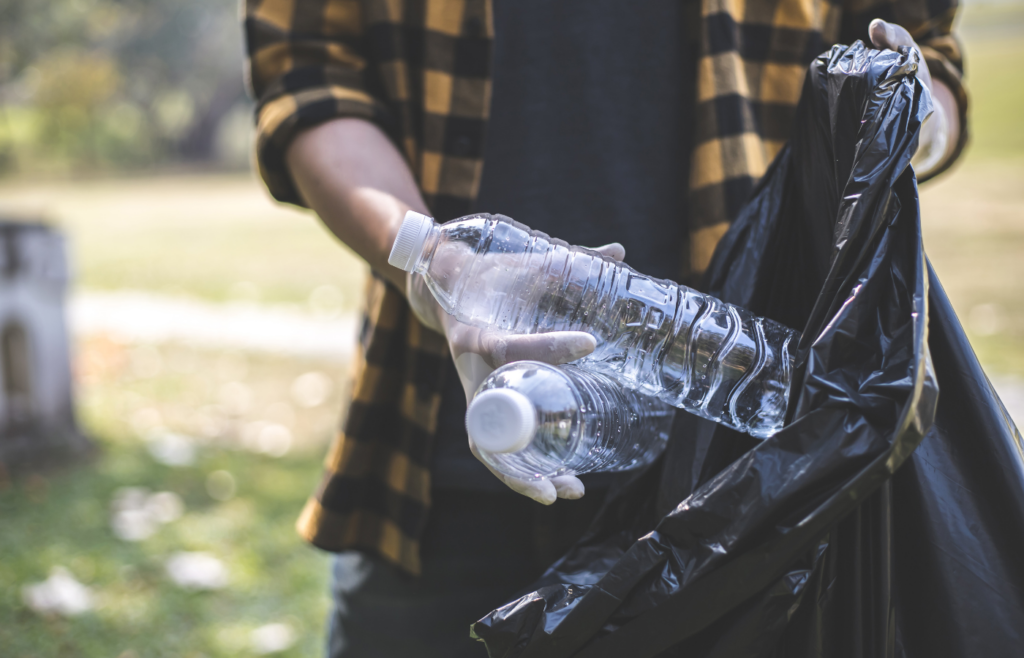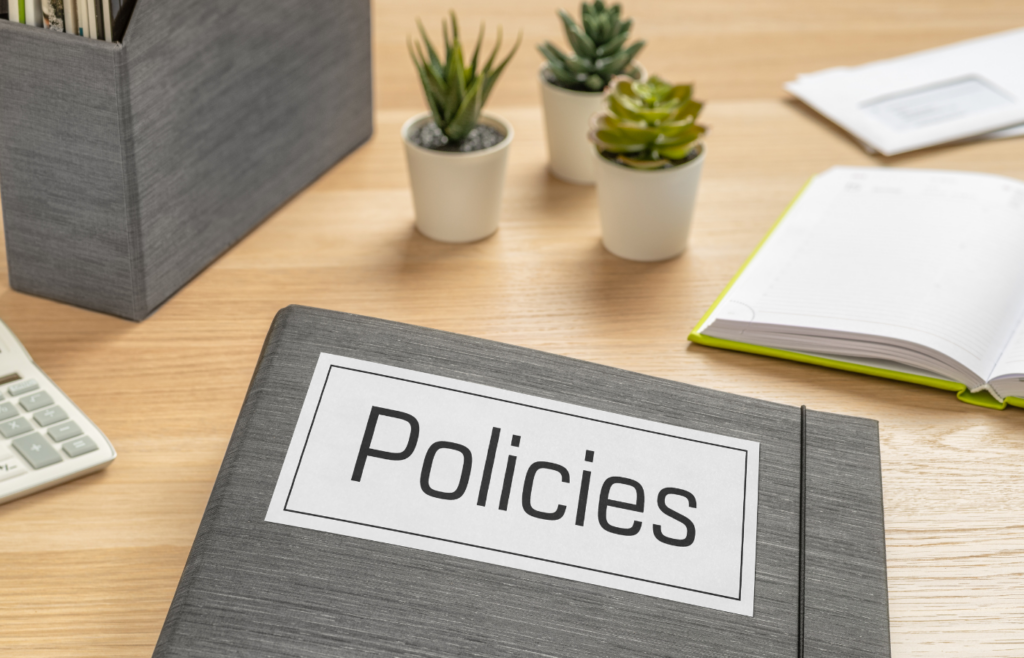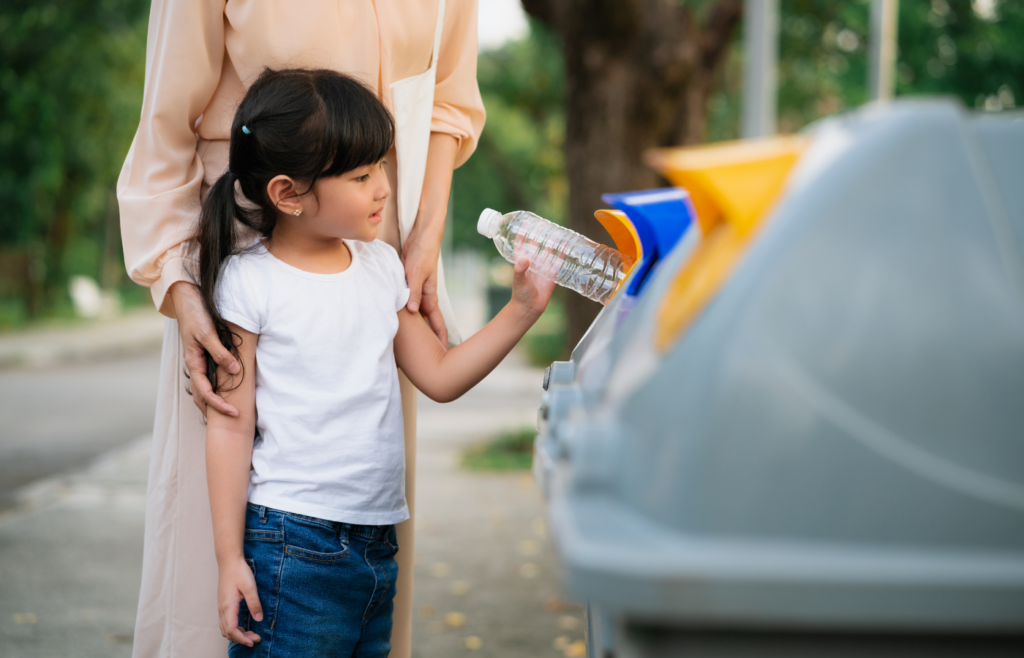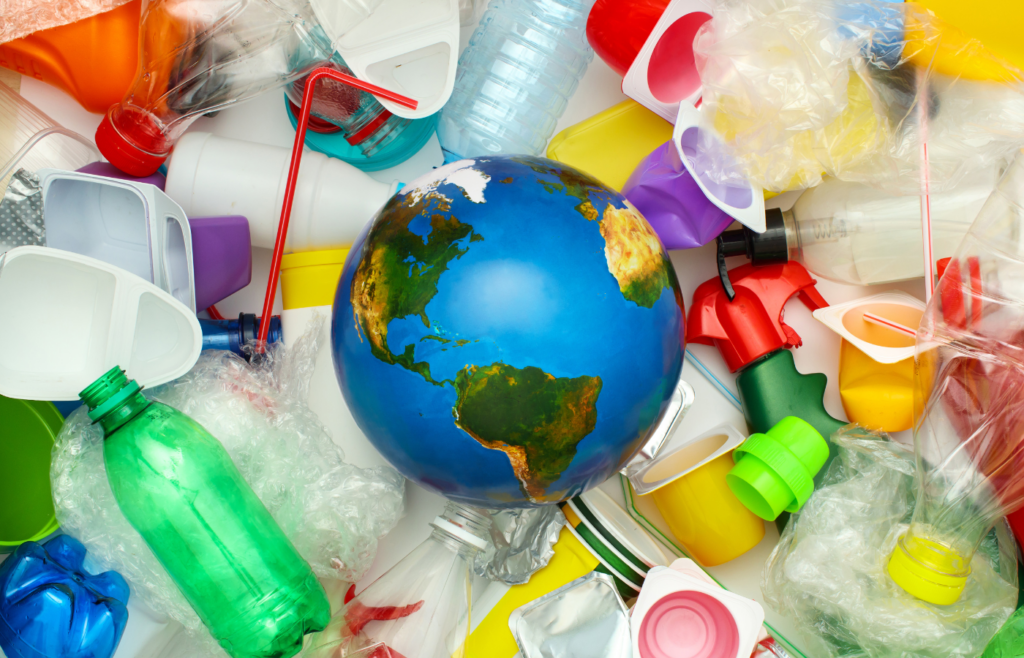The plastic waste crisis is no longer just an environmental concern but a critical economic challenge as well. Plastic pollution levels continue to rise at an alarming rate, making it extremely difficult to manage and mitigate the problem. It requires a concerted effort between governments, communities, and even corporations to address it.
In this AIC Insight, we shine the spotlight on the economics of plastic waste collection. Find out how much it costs to keep plastic pollution levels in check, as well as how we can make the entire process more sustainable in the long run.
The Rising Tide of Plastic Pollution: A Global Economic Challenge

Plastic, once hailed as a revolutionary material for its versatility and durability, has now become a double-edged sword, contributing significantly to environmental degradation, and posing economic challenges. The sheer scale of plastic production and consumption has led to massive waste generation, straining waste management systems and impacting ecosystems.
- The Environmental Costs of Plastic Pollution
Before examining the economic dimensions, it is essential to understand the environmental costs associated with plastic pollution. Plastic waste, particularly in oceans and waterways, disrupts ecosystems, harms marine life, and poses risks to human health. Cleanup efforts, environmental restoration, and addressing the impacts of plastic pollution on fisheries and tourism industries all contribute to the economic toll of plastic waste. - The Urgency of Plastic Waste Management
The urgency to address plastic waste is not only an environmental imperative but also an economic necessity. Governments, businesses, and communities are grappling with the economic fallout of unchecked plastic pollution, from the costs of waste management infrastructure to the economic ramifications of environmental degradation on industries that depend on healthy ecosystems.
The Costs of Plastic Waste Collection
- Infrastructure Investment
Establishing a robust infrastructure for plastic waste collection is a fundamental requirement for effective waste management. This involves the creation of recycling facilities, collection systems, and processing centers capable of handling diverse types of plastic. The costs associated with building and maintaining such infrastructure can be significant, requiring collaboration between governments, private entities, and non-profit organisations. - Technological Solutions
Technological advancements play a crucial role in enhancing the efficiency and effectiveness of plastic waste collection. Innovations in sorting technologies, waste-to-energy solutions, and recycling processes contribute to a more sustainable and economically viable waste management ecosystem. However, the development and implementation of these technologies often come with research and development costs and initial investment hurdles. - Labour and Outreach
Engaging communities in plastic waste collection initiatives involves labor, education, and outreach efforts. Mobilising individuals for cleanup events, implementing educational programs, and fostering a sense of responsibility among citizens all require resources. Governments, NGOs, and businesses invest in manpower, awareness campaigns, and community engagement to ensure the success of plastic waste collection initiatives.
The Economic Benefits of Responsible Plastic Waste Collection
- Job Creation
Investing in plastic waste collection initiatives generates employment opportunities across various sectors. From the establishment and operation of recycling facilities to community outreach programs, the waste management sector contributes to job creation. This is particularly impactful in regions with high unemployment rates, creating a positive economic ripple effect.
The recycling industry alone creates a significant number of jobs related to plastic waste collection.
Recycling facilities create at least 90 jobs per 10,000 tons of waste due to more labor-intensive processes, according to a report from the Tellus Institute. In contrast, only one job per 10,000 tons of waste was generated at waste disposal facilities like landfills and incineration sites.
In the US, 86% of total waste management jobs come from recycling activities. This highlights the substantial job creation potential in the recycling sector, especially in relation to plastic waste collection and processing. - Resource Recovery and Recycling
Efficient plastic waste collection facilitates resource recovery and recycling, turning waste into valuable materials. Recycled plastics can be used in the production of new goods, reducing the demand for virgin materials. This not only conserves natural resources but also contributes to the circular economy, where materials are reused, reducing the environmental impact of extraction and manufacturing. - Reduced Environmental Cleanup Costs
One of the most significant economic benefits of responsible plastic waste collection is the reduction in environmental cleanup costs. By preventing plastic from entering water bodies and natural habitats, the need for costly environmental restoration and cleanup efforts decreases.
The savings from avoiding these extensive cleanup operations can be redirected toward proactive waste management solutions.
Sustainable Business Models for Plastic Waste Collection
- Extended Producer Responsibility (EPR)
Implementing Extended Producer Responsibility (EPR) is a key strategy for creating a sustainable model for plastic waste collection. EPR mandates that producers take responsibility for the entire life cycle of their products, including the collection and recycling of post-consumer waste.
By holding producers accountable for the end-of-life management of their products, EPR incentivises sustainable packaging practices and creates a more circular economy. - Public-Private Partnerships
Collaboration between the public and private sectors is crucial for developing effective and sustainable plastic waste collection systems. Governments can create incentives for private companies to invest in recycling infrastructure, and businesses can actively participate in waste management initiatives.
Public-private partnerships leverage the strengths of both sectors, fostering innovation and driving economic and environmental benefits. - Circular Economy Initiatives
Transitioning to a circular economy, where resources are reused and recycled, is integral to sustainable plastic waste management. Circular economy initiatives focus on minimising waste, designing products for recyclability, and encouraging the use of recycled materials.
By promoting a closed-loop system, these initiatives contribute to environmental sustainability while creating economic value through resource efficiency.
The Role of Government Policies in Shaping Economic Incentives

- Plastic Bans and Restrictions
Enforcing bans and restrictions on single-use plastics is a common approach adopted by governments to curb plastic pollution. While these measures directly impact plastic production and consumption, they also create economic opportunities for alternative materials and sustainable packaging solutions.
Governments can stimulate economic growth in industries that align with eco-friendly alternatives through targeted policies. - Financial Incentives and Subsidies
Governments can provide financial incentives and subsidies to businesses and communities that actively engage in responsible plastic waste collection. This can include tax breaks for companies investing in recycling infrastructure, subsidies for sustainable packaging solutions, or grants for community-led cleanup initiatives.
By aligning economic incentives with environmental stewardship, governments encourage a shift towards responsible waste management practices. - Regulatory Frameworks for EPR
Implementing and enforcing regulatory frameworks for Extended Producer Responsibility (EPR) is crucial for holding businesses accountable for the plastic waste generated by their products. Governments can set clear guidelines for EPR, specifying the responsibilities of producers and establishing penalties for non-compliance.
EPR regulations create economic incentives for producers to adopt sustainable practices and invest in waste collection and recycling.
Challenges and Future Considerations
- Global Inequality and Access
Access to effective plastic waste collection infrastructure is not uniform globally. In many developing regions, limited access to resources and infrastructure exacerbates the challenges of plastic pollution. Addressing global inequality requires concerted efforts from the international community to support capacity-building initiatives, technology transfer, and equitable access to waste management solutions. - Technological and Innovation Gaps
The rapid evolution of technology poses both challenges and opportunities for plastic waste collection. While advanced technologies offer efficient solutions, the pace of innovation can create gaps in accessibility, particularly for smaller communities and developing regions.
Bridging these gaps requires a balance between embracing cutting-edge technologies and ensuring inclusivity in waste management practices. - Shifting Consumer Behaviour
Changing consumer behavior is a complex and ongoing challenge in the quest for sustainable plastic waste collection. Governments, businesses, and advocacy groups must continue to invest in education, awareness campaigns, and behavioral interventions to foster a culture of responsible consumption and waste reduction.
Shifting societal norms towards sustainability is a gradual process that requires persistence and collaboration.
Striking a Balance for a Sustainable Future

The economics of plastic waste collection represent a delicate balance between the costs of addressing the plastic problem and the economic benefits of sustainable waste management practices. As we continue to grapple with the consequences of plastic pollution, there is a growing recognition that the economic imperative aligns with environmental stewardship.
To successfully build sustainable models for plastic waste collection, we need to have a multifaceted approach that encompasses technological innovation, responsible consumer behaviour, and supportive government policies.
Only by embracing responsibility can we achieve the vision of a better future where economic prosperity aligns with environmental sustainability. Every stakeholder needs to contribute to a world where plastic waste is no longer a threat but a resource waiting to be harnessed for the greater good.
For more news & insights, stay tuned to the AIC website.

